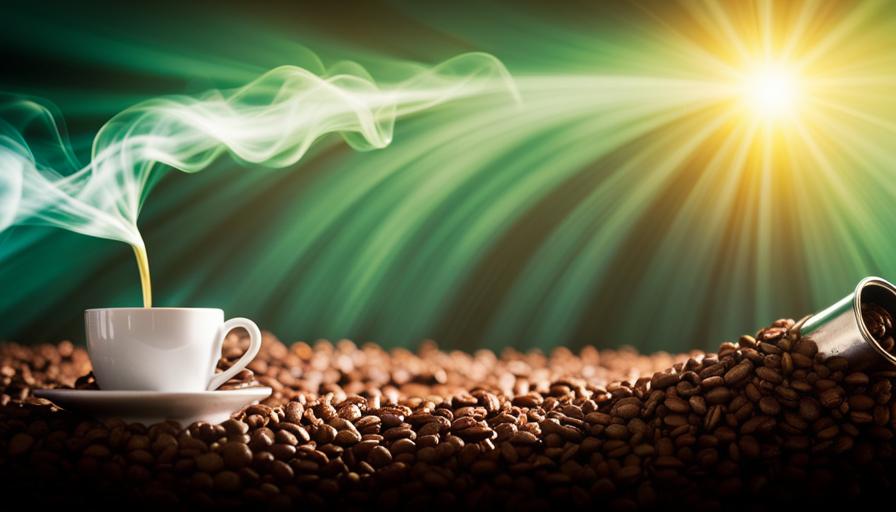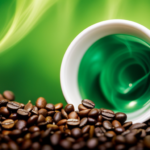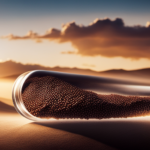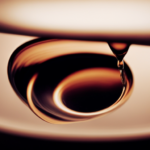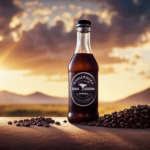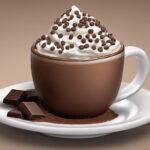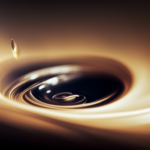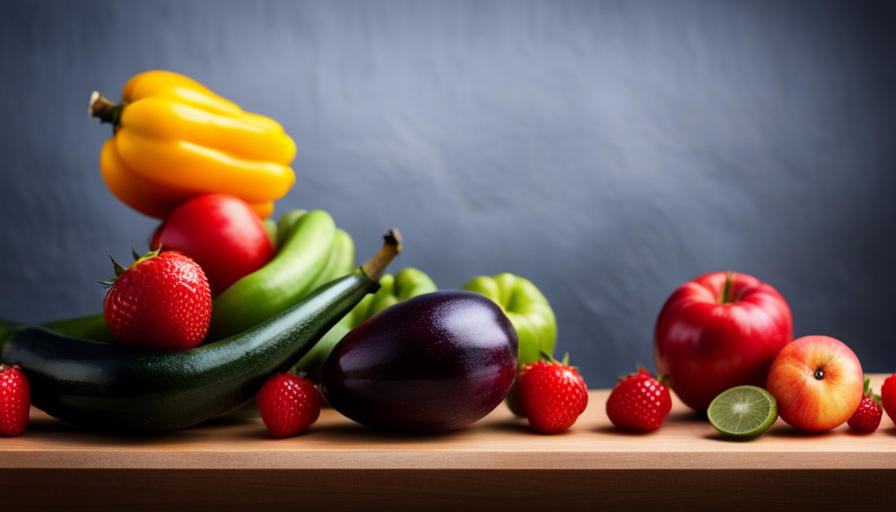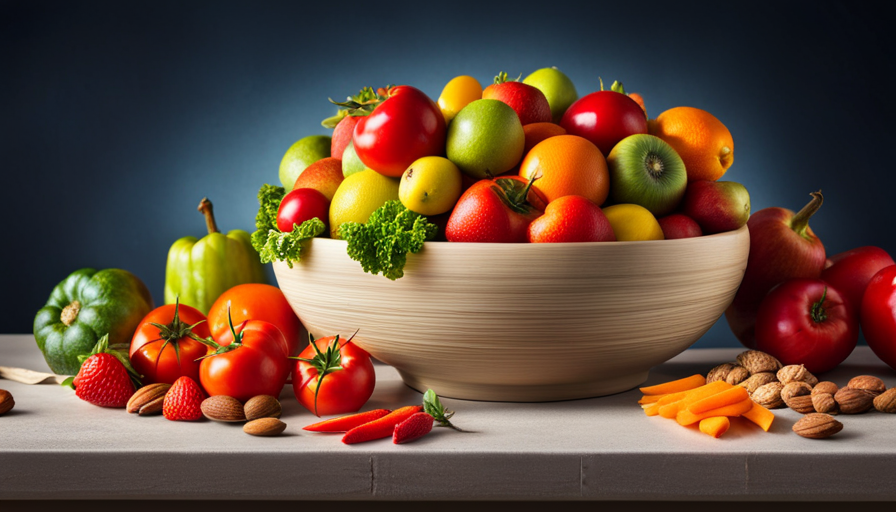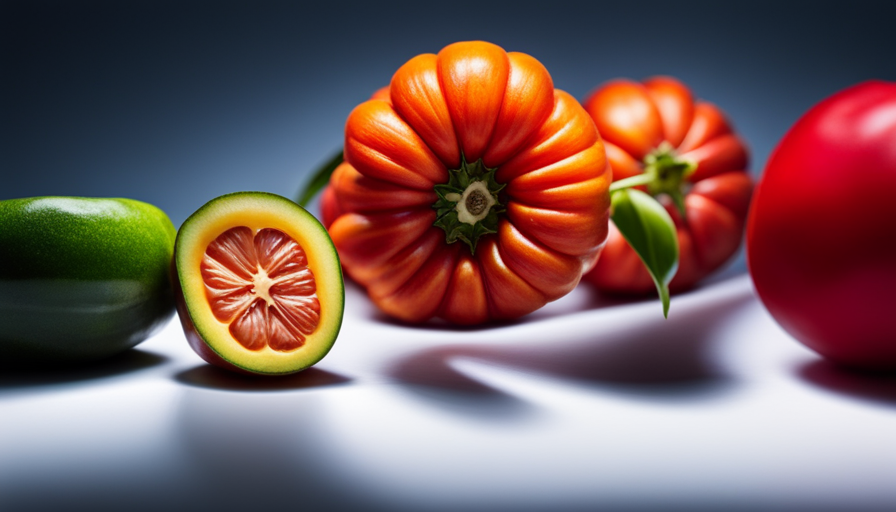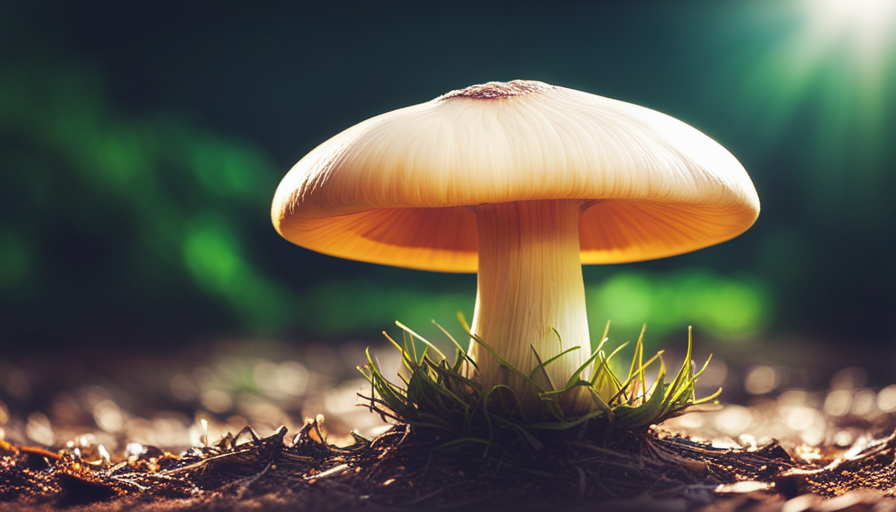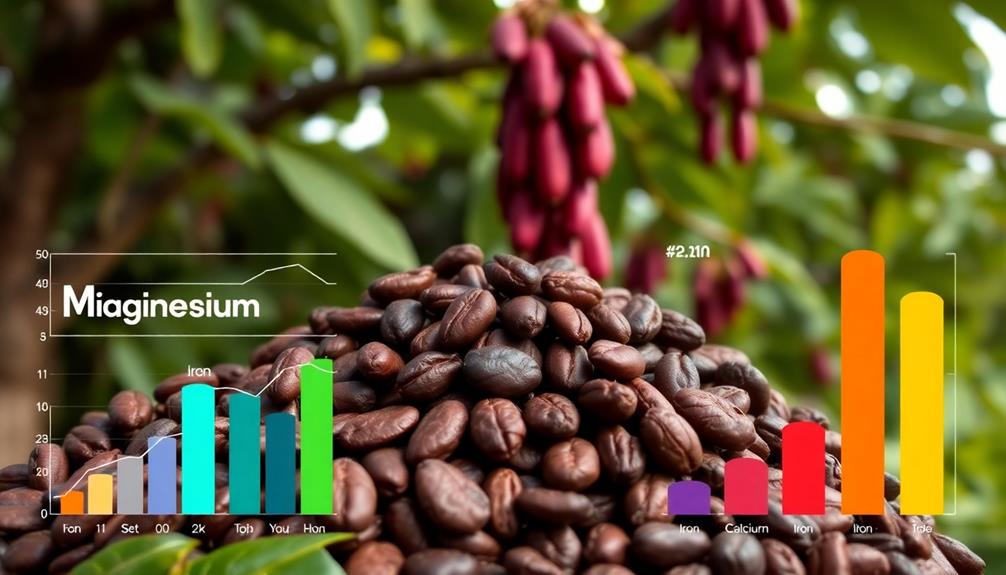When it comes to caffeinated beverages, Mountain Dew and coffee are top choices for many. They are both symbols of energy and alertness, but their caffeine content varies significantly.
Mountain Dew, a ubiquitous soda known for its vibrant green color, offers a refreshing jolt with 54 mg of caffeine per 355 ml can. However, for those seeking an even greater kick, Mountain Dew Zero packs a more potent punch with 68 mg of caffeine in the same serving size.
On the other hand, coffee, the go-to morning beverage for many, contains approximately 136 mg of caffeine per cup, making it a more potent source of the stimulating compound.
When it comes to sugar content, Mountain Dew exceeds the recommended daily allowance, while coffee remains sugar-free unless sweeteners are added.
This article will delve into the caffeine content and impact on daily sugar intake of these two popular choices, shedding light on the caffeine showdown between Mountain Dew and coffee.
Key Takeaways
- Mountain Dew is a highly caffeinated soda, containing 54 mg of caffeine per 355 ml can, while Mountain Dew Zero has even more caffeine at 68 mg per can.
- A traditional cup of coffee contains about 136 mg of caffeine, making it significantly higher in caffeine content compared to Mountain Dew.
- Mountain Dew is a popular choice for gamers seeking a caffeine fix.
- Consuming a can of Mountain Dew exceeds the recommended daily sugar allowance, highlighting the potential health concerns associated with its high sugar content.
The Caffeine Showdown:
In comparing the caffeine content of Mountain Dew and coffee, it is evident that Mountain Dew contains significantly less caffeine than coffee. Mountain Dew, with 54 mg of caffeine per 355 ml can, pales in comparison to the approximately 136 mg of caffeine found in a traditional cup of coffee. This stark difference in caffeine content raises the question: which is the better caffeine source?
When considering the effects of caffeine on the body, it becomes apparent that coffee provides a more potent stimulant effect. Coffee’s higher caffeine content stimulates the central nervous system, increasing alertness and reducing fatigue. Additionally, coffee has been associated with numerous health benefits, such as improved cognitive function and a lower risk of certain diseases.
On the other hand, Mountain Dew, with its lower caffeine content, may provide a milder stimulant effect.
Ultimately, the choice between Mountain Dew and coffee as a caffeine source depends on individual preferences and needs. While coffee offers a higher caffeine content and potential health benefits, Mountain Dew may be a suitable option for those seeking a milder stimulant effect.
Caffeine Content Comparison
When comparing the caffeine content, it is evident that coffee significantly surpasses that of Mountain Dew. Coffee has a long-standing reputation for its high caffeine content, with a traditional cup containing about 136 mg of caffeine. On the other hand, a 355 ml can of Mountain Dew contains only 54 mg of caffeine.
Consuming high levels of caffeine can have various health effects, including increased heart rate, difficulty sleeping, and potential addiction. It is important to note that the cultural significance of coffee and Mountain Dew varies in different regions. Coffee is deeply ingrained in many cultures and is often associated with social gatherings and morning routines. Mountain Dew, on the other hand, has gained popularity among gamers and is seen as an energizing beverage.
Understanding the caffeine content and cultural significance of these beverages can help individuals make informed choices about their caffeine consumption.
Impact on Daily Sugar Intake
The impact of consuming beverages with high sugar content, such as Mountain Dew and coffee, can have significant implications on an individual’s daily sugar intake. Excessive sugar consumption has been linked to various health risks, including obesity, type 2 diabetes, and heart disease. To reduce daily sugar intake, individuals can implement strategies such as reading nutrition labels, choosing beverages with no added sugars or artificial sweeteners, and gradually reducing the amount of sugar added to drinks. The table below provides a comparison of the sugar content in Mountain Dew and coffee, highlighting the need for moderation and conscious choices when it comes to sugar consumption.
| Beverage | Sugar Content (per 355 ml) |
|---|---|
| Mountain Dew | 46 g |
| Coffee | Negligible |
By opting for unsweetened coffee or reducing the amount of sugar added to it, individuals can enjoy their caffeine fix without significantly impacting their daily sugar intake.
Frequently Asked Questions
What are some other high-caffeine soda options besides Mountain Dew?
High-caffeine energy drinks offer alternatives to Mountain Dew for those seeking a caffeine boost. Bawls Exxtra is a notable option, with a high caffeine content of 9.4 mg per fluid ounce. This soda contains 113 mg of caffeine in a 12 fluid ounce serving.
Another option is Coke Coffee, which contains 69 mg of caffeine in a 12 fl oz serving. These high-caffeine soda options provide an alternative to Mountain Dew for individuals looking for a potent caffeine kick.
Does the caffeine content in Mountain Dew vary depending on the flavor?
The caffeine content in Mountain Dew can vary depending on the flavor. While a regular 355 ml can of Mountain Dew contains 54 mg of caffeine, Mountain Dew Zero has a slightly higher caffeine content of 68 mg per can. However, it is important to note that these variations in caffeine content are relatively small compared to other carbonated beverages.
Coffee, on the other hand, typically contains a significantly higher amount of caffeine compared to different soda drinks, with an average of 136 mg per traditional cup.
Are there any health risks associated with consuming high levels of caffeine from Mountain Dew or coffee?
Consuming high levels of caffeine from Mountain Dew or coffee can have potential health risks. The health effects of caffeine vary depending on the individual’s tolerance and sensitivity. Excessive caffeine consumption can lead to symptoms such as increased heart rate, high blood pressure, anxiety, insomnia, and digestive issues.
It is important to adhere to caffeine consumption limits recommended by health organizations, such as the American Heart Association, which suggests limiting added sugars to no more than 6% of daily calories.
Can caffeine from Mountain Dew or coffee affect sleep patterns or quality of sleep?
Caffeine consumption can indeed affect sleep patterns and sleep quality. Caffeine is a stimulant that can interfere with the body’s natural sleep-wake cycle. It blocks adenosine receptors in the brain, which promotes wakefulness.
Research has shown that consuming caffeine close to bedtime can delay the onset of sleep, reduce total sleep time, and decrease sleep quality. Additionally, excessive caffeine intake has been associated with sleep disorders such as insomnia and restless leg syndrome.
Therefore, individuals should be cautious when consuming caffeine, including from beverages like Mountain Dew or coffee, particularly in the evening to ensure better sleep quality.
Are there any potential side effects or risks associated with consuming excessive amounts of sugar from Mountain Dew?
Excessive consumption of sugar from Mountain Dew can have potential long-term effects on health. The high sugar content can lead to weight gain, increased risk of obesity, and associated conditions like diabetes and heart disease.
Additionally, the acidic nature of Mountain Dew can erode tooth enamel, leading to dental health issues such as cavities and tooth decay.
It is important to limit sugar intake and practice good dental hygiene to mitigate these potential risks.
Can Mountain Dew Be a Substitute for Coffee for Caffeine?
If you’re looking for a pick-me-up, Mountain Dew can be a substitute for coffee for caffeine. However, be mindful of the sugar content. For some witty coffee puns, check out this witty coffee puns article. Enjoy the buzz without the beans!
Conclusion
In conclusion, the caffeine showdown between Mountain Dew and coffee reveals that coffee reigns supreme in terms of caffeine content.
While Mountain Dew and other sodas may be popular sources of caffeine, they pale in comparison to the caffeine levels found in a cup of coffee.
Additionally, the high sugar content in Mountain Dew raises concerns about exceeding recommended daily sugar allowances.
When it comes to getting a caffeine boost, it seems that coffee is the clear winner, leaving sodas like Mountain Dew in the dust.

